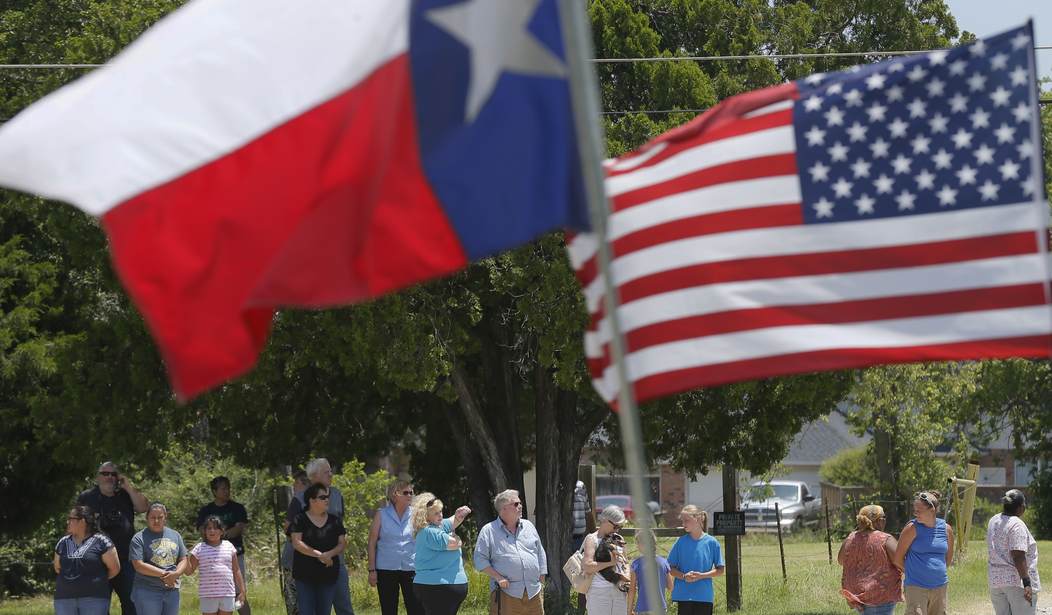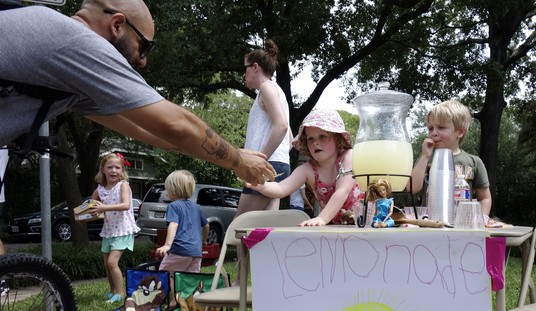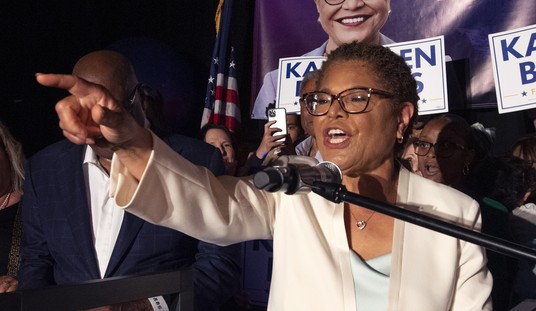The Infrastructure Investment and Jobs Act is passing out a lot of free money to the states, with some strings attached — there are always strings attached. For instance, the Act appropriates $21 billion for "environmental projects," $105 billion for public transport, $15 billion for electric vehicles, and $73 billion for "overhauling the energy policy of the United States."
The Act also includes $7.5 billion to build a national network of electric vehicle chargers. The Tenth Amendment would like a word.
But here's the fun bit: Texas is going to spend a bunch of that money on highway projects.
According to the TxDOT draft document, a chunk of the Infrastructure Investment and Jobs Act money will be transferred to a highway program, and the agency says highway expansions could be eligible for the funds because they will reduce congestion, thereby reducing emissions from idling cars.
Harrison Humphreys, a research and policy coordinator at Air Alliance Houston, an environmental advocacy group, said he sees the strategy as doing “the bare minimum” to get the federal dollars and called the document “disappointing.”
TxDOT created the strategy — which outlines the methods by which it plans to cut emissions — to fulfill federal requirements for the money. TxDOT is expected to receive $641 million over five years for transportation projects that cut emissions, the most of any state.
So Texas is doing the "bare minimum" to get the federal freebies. So what? There's a minimum for a reason, and Texas is taking it. So what's the problem?
There is, of course, the elephant in the room — that the federal government takes money out of the economies of the various states, filters it through several layers of bureaucracy, each of whom takes a bite, and then passes some of that money back to the states with a few dozen conditions and qualifications. It would certainly be more efficient and more cost-effective to not take that money from the people of the states in the first place, to let states handle taxation and infrastructure projects themselves. Of course, that would result in the federal government not being allowed to impose those conditions and qualifications, and let's be honest about it: That's really the main reason for doing things this way, isn't it?
Mr. Harrison Humphrey, who thinks playing exactly by the rules as written is "disappointing," would probably bemoan the amount of subsidies (most of which are tax breaks, not actual payouts) to the oil companies when actually green energy projects are much more heavily funded; a recent story by The Heartland Institute here at RedState did the math:
According to a recent report by the U.S. Energy Information Administration, the federal government has doled out $183.3 billion in direct and indirect subsidies for green energy over the past six years alone. The majority of these subsidies ($83.8 billion) have gone to solar and wind power, which account for roughly 20 percent of total domestic energy production.
On the other hand, conventional sources of energy, such as oil, coal, and natural gas, which account for more than 60 percent of domestic energy production, received $24.5 billion in federal subsidies over the same period.
As if that weren't bad enough, a lot of this "green" tech just plain doesn't work very well and gives the consumer a lot less bang for their hard-earned buck. To a lot of the "green" activists, that's a feature, not a bug, as they are heavily invested in the philosophy of one Sir Arthur Wellesley, Duke of Wellington, who was reputed to have said that railroads would "promote unrest by allowing the lower orders to travel too freely about."
Tech may, of course, change in the future, and with new sources (like, say, new nuclear power plants) and improvements in battery technology, electric cars may well become more viable — for some. Not so much for us out here in the woods, but for urban commuters? Likely so. We solve today’s problems with tomorrow’s technology, and in many cases, a lot of those technological solutions are unforeseen. For example, I can tell you with great certainty that in the 1970s, nobody predicted the Internet, and yet here we are today, with a tool that has literally changed the world and ushered in the Information Revolution.
The real problem here isn't "green" infrastructure or the lack thereof. It isn't that Texas actually played by the rules set by Washington D.C. and upset some environmental activist. It isn't even that Texas is building more highways. The real problem here is that, once more, the federal government is being wasteful, inefficient, and overbearing, and bleeding us of our hard-earned increments to fuel that wastefulness, inefficiency, and overbearing ways.
Good on Texas for playing the game better than Washington may have anticipated. But it's time for this game to be drawn to a close. Infrastructure (with rare exceptions such as pipelines that cross state lines) is best handled by the states, not by Washington.














